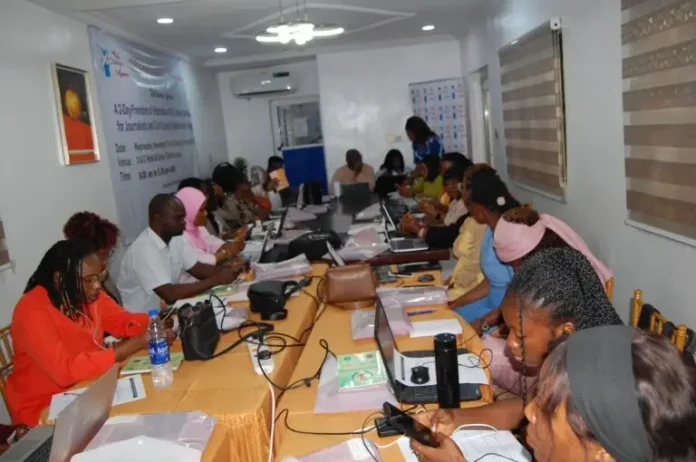By Boluwatife Adedokun
Media experts have called for stronger use of the Freedom of Information (FOI) Act alongside modern digital tools to improve accountability reporting in Nigeria.
This was the focus of a two-day training organised by Media Rights Agenda (MRA) in Lagos, with support from Luminate, where journalists and civil society actors were trained on effective FOI usage and digital research skills.
Related Posts:
- From Nigeria to the World: Remarkable Guinness World…
- Transforming Media Reportage: Harbinger Trains…
- FactCheck Africa Trains Journalists on Digital…
- Implied Terms in Contracts: Balancing Freedom and Protection
- The Antidote of 21st Century: Skills or Degree?
Powered by Contextual Related Posts
MRA’s Executive Director, Edetaen Ojo, said many journalists still struggle to obtain critical public records because they do not fully utilise the FOI Act. He stressed that information remains central to public-interest reporting and urged participants to treat FOI requests as essential to exposing how public funds are managed.
“Information is the lifeblood of our work. The FOI Act is not just a right; it is a tool for uncovering how decisions are made, especially when government agencies are reluctant to be transparent,” Ojo said.
Participants highlighted recurring issues such as ignored requests, weak enforcement of the seven-day response requirement, and bureaucratic obstacles that often frustrate attempts to access public information. The workshop provided practical sessions on drafting effective requests, tracking follow-ups, and improving success rates.
Facilitator Ayomide Eweje introduced participants to digital tools increasingly shaping modern investigative work. He explained how artificial intelligence, Google Sheets, and Excel can help journalists analyse data, identify inconsistencies in public records, and collaborate on complex investigations.
“Digital tools are no longer optional. They help fact-check faster, expand reporting reach, and turn raw data into compelling public-interest stories,” he said.
A civil society researcher at the session demonstrated this potential by using an AI tool to review a sample government budget, quickly identifying discrepancies that could form the basis of an investigative report.
Eweje noted that journalists who fail to embrace digital methods risk falling behind at a time when misinformation spreads rapidly. “These tools strengthen reporting and empower citizens to demand accountability,” he added.
At the end of the training, participants left with FOI templates, digital guides and a network for continued collaboration. MRA said the initiative aims to strengthen transparency efforts and support more assertive accountability journalism across the country.




